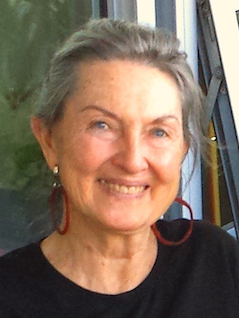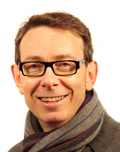Related Research Articles

The following outline is provided as an overview of and topical guide to the discipline of sociology:
Technology assessment is a practical process of determining the value of a new or emerging technology in and of itself or against existing technologies. This is a means of assessing and rating the new technology from the time when it was first developed to the time when it is potentially accepted by the public and authorities for further use. In essence, TA could be defined as "a form of policy research that examines short- and long term consequences of the application of technology."
Frederick Howard Buttel was the William H. Sewell Professor of Rural Sociology at the University of Wisconsin–Madison. A prominent scholar of the sociology of agriculture, Buttel was well known also for his contributions to environmental sociology.

Science studies is an interdisciplinary research area that seeks to situate scientific expertise in broad social, historical, and philosophical contexts. It uses various methods to analyze the production, representation and reception of scientific knowledge and its epistemic and semiotic role.

Science and technology studies (STS) or science, technology, and society is an interdisciplinary field that examines the creation, development, and consequences of science and technology in their historical, cultural, and social contexts.
Public awareness of science (PAwS) is everything relating to the awareness, attitudes, behaviors, opinions, and activities that comprise the relations between the general public or lay society as a whole to scientific knowledge and organization. This concept is also known as public understanding of science (PUS), or more recently, public engagement with science and technology (PEST). It is a comparatively new approach to the task of exploring the multitude of relations and linkages science, technology, and innovation have among the general public. While early work in the discipline focused on increasing or augmenting the public's knowledge of scientific topics, in line with the information deficit model of science communication, the deficit model has largely been abandoned by science communication researchers. Instead, there is an increasing emphasis on understanding how the public chooses to use scientific knowledge and on the development of interfaces to mediate between expert and lay understandings of an issue. Newer frameworks of communicating science include the dialogue and the participation models. The dialogue model aims to create spaces for conversations between scientists and non-scientists to occur while the participation model aims to include non-scientists in the process of science.

Risk perception is the subjective judgement that people make about the characteristics and severity of a risk. Risk perceptions often differ from statistical assessments of risk since are affected by a wide range of affective, cognitive, contextual, and individual factors. Several theories have been proposed to explain why different people make different estimates of the dangerousness of risks. Three major families of theory have been developed: psychology approaches, anthropology/sociology approaches and interdisciplinary approaches.

The Joint Research Centre (JRC) is the European Commission's science and knowledge service which employs scientists to carry out research in order to provide independent scientific advice and support to European Union (EU) policy.
Scott Lash is a professor of sociology and cultural studies at Goldsmiths, University of London. Lash obtained a BSc in Psychology from the University of Michigan, an MA in Sociology from Northwestern University, and a PhD from the London School of Economics (1980). Lash began his teaching career as a lecturer at Lancaster University and became a professor in 1993. He moved to London in 1998 to take up his present post as Director for the Centre for Cultural Studies and Professor of Sociology at Goldsmiths College.

Ariel Salleh is an Australian sociologist who writes on humanity-nature relations, political ecology, social change movements, and ecofeminism.

Science communication encompasses a wide range of activities that connect science and society. Common goals of science communication include informing non-experts about scientific findings, raising the public awareness of and interest in science, influencing people's attitudes and behaviors, informing public policy, and engaging with diverse communities to address societal problems. The term "science communication" generally refers to settings in which audiences are not experts on the scientific topic being discussed (outreach), though some authors categorize expert-to-expert communication as a type of science communication. Examples of outreach include science journalism and health communication. Since science has political, moral, and legal implications, science communication can help bridge gaps between different stakeholders in public policy, industry, and civil society.
The Scientific Committee on Health and Environmental Risks (SCHER) is one of the independent scientific committees managed by the Directorate-General for Health and Consumer Protection of the European Commission, which provide scientific advice to the Commission on issues related to consumer products.

Steve Yearley is a British sociologist. He is Professor of the Sociology of Scientific Knowledge at the University of Edinburgh, a post he has held since 2005. He has been designated a Fellow of the Royal Society of Edinburgh. He is currently Director of the Institute for Advanced Studies in the Humanities.
The Science Communication Observatory is a Special Research Centre attached to the Department of Communication of the Pompeu Fabra University in Barcelona, Spain, set up in 1994. This centre is specialized in the study and analysis of the transmission of scientific, medical, environmental and technological knowledge to society. The journalist Vladimir de Semir, associated professor of Science Journalism at the Pompeu Fabra University, was the founder and is the current director of the centre. A multidisciplinary team of researchers coming from different backgrounds is working on various lines of research: science communication; popularization of sciences, risk and crisis communication; science communication and knowledge representation; journalism specialized in science and technology; scientific discourse analysis; health and medicine in the daily press; relationships between science journals and mass media; history of science communication; public understanding of science; gender and science in the mass media, promotion of scientific vocations, science museology, etc.

Geoffrey Nigel Gilbert is a British sociologist and a pioneer in the use of agent-based models in the social sciences. He is the founder and director of the Centre for Research in Social Simulation, author of several books on computational social science, social simulation and social research and past editor of the Journal of Artificial Societies and Social Simulation (JASSS), the leading journal in the field.
Genetically modified canola is a genetically modified crop. The first strain, Roundup Ready canola, was developed by Monsanto for tolerance to glyphosate, the active ingredient in the commonly used herbicide Roundup.

BRGM is France's public reference institution in Earth Science applications for the management of surface and subsurface resources and risks. It is the French Geological Survey.
Reiner Grundmann, is Professor of Science and Technology Studies (STS) at the University of Nottingham and Director of its interdisciplinary STS Research Priority Group. He is a German sociologist and political scientist who has resided in the UK since 1997. Previous appointments include Aston University and the Max Planck Institute for the Study of Societies.
Robin Grove-White is an Anglo-Irish Welsh environmentalist, and academic, Emeritus Professor of Environment and Society at Lancaster University. Grove-White Chairs the board of the Institute for Study of Welsh Estates (ISWE) at Bangor University. He is also involved in local organisations such as Menter Mechell and Cymdeithas Hanes Mechell and is president of the Anglesey Antiquarian Society. In 2018 he was awarded an honorary fellowship for Services to the Community at Bangor University
The concept of Extended peer community belongs to the field of Sociology of science, and in particular the use of science in the solution of social, political or ecological problems. It was first introduced by in the 1990s by Silvio Funtowicz and Jerome R. Ravetz. in the context of what would become Post-normal science. An Extended peer community is intended by these authors as a space where both credentialed experts from different disciplines and lay stakeholders can discuss and deliberate.
References
- ↑ http://ec.europa.eu/research/science-society/document_library/pdf_06/european-knowledge-society_en.pdf [ bare URL PDF ]
- ↑ Lash, S. M., Wynne, B., & Szerszynski, B. (Eds.). (1995). Risk, Environment and Modernity : Towards a New Ecology, SAGE Publications Ltd. Retrieved from https://www.torrossa.com/en/resources/an/5017599
- ↑ Wynne, B. (1992). Uncertainty and environmental learning. Reconceiving science and policy in the preventive paradigm. Global Environmental Change, 2(2), 111–127.
- ↑ Wynne, B. (1991). Knowledges in Context. Science, Technology, & Human Values, 16(1), 111–121.


